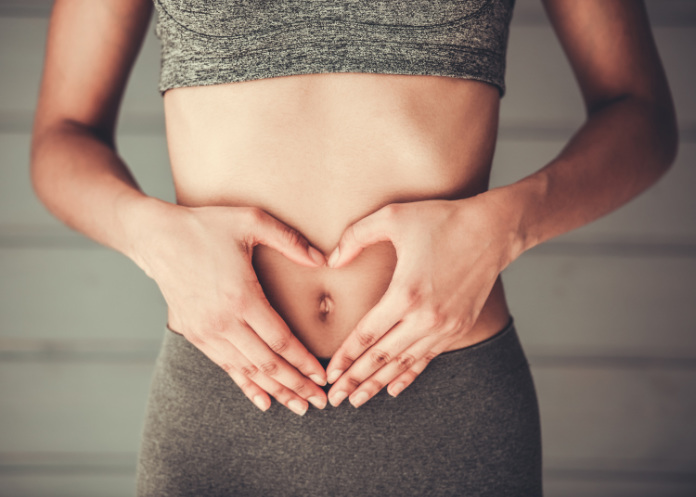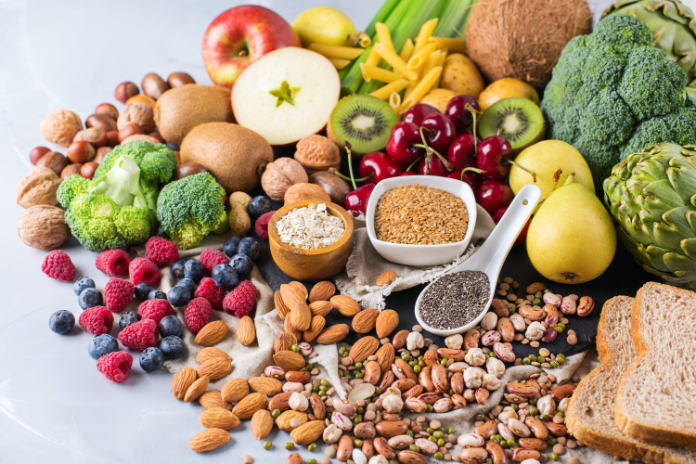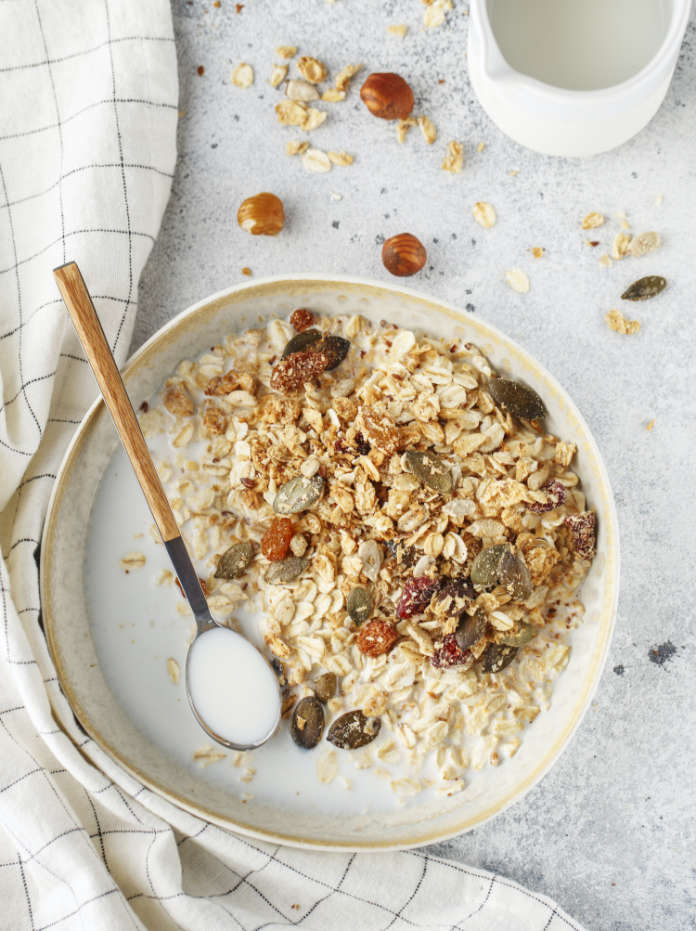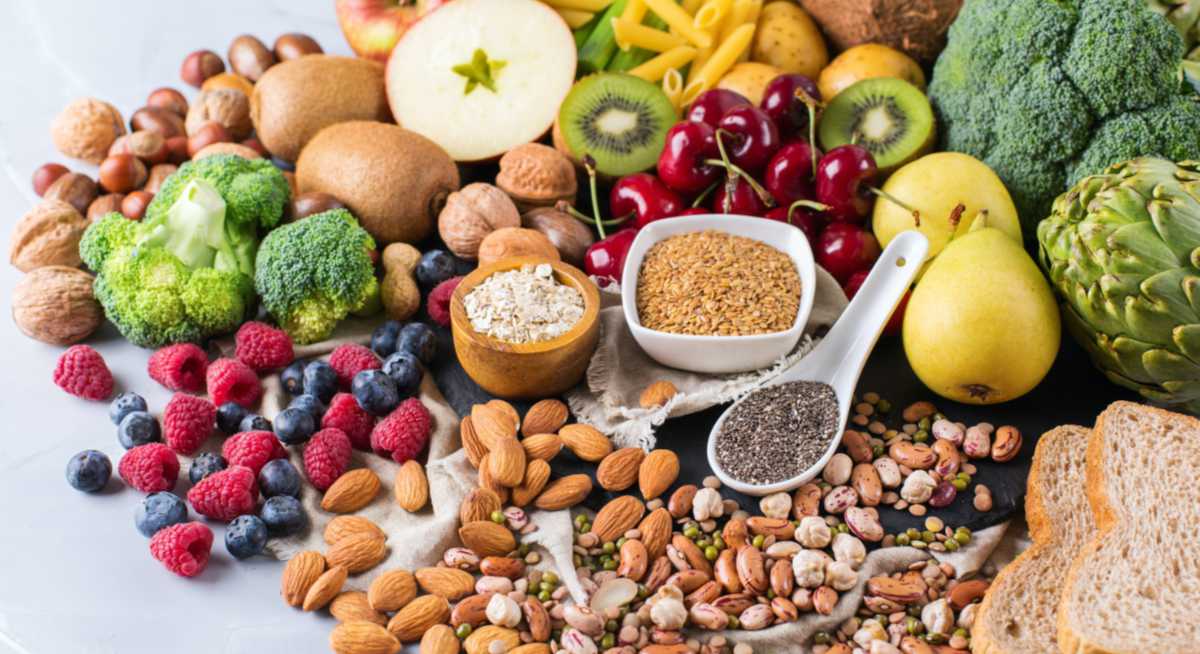With the UK currently navigating a global pandemic, it’s becoming increasingly more important to take intentional steps to safeguard our mental health. But aside from taking part in lunchtime yoga sessions, speaking to a digital therapist and laying off the post-work quarantinis, taking a fresh look at your diet could help to lower your risk of low moods during this uncertain period.
Dr Megan Rossi, aka The Gut Health Doctor (@theguthealthdoctor), reveals how eating with our gut in mind can help bolster your mental health during lockdown.
Gut health is more important than you think
“Rather than ‘you are what you eat’, I like to think of health as being ‘you are what you digest’. No matter how healthy your diet is, you won’t be able to extract the nutrition from your food and absorb it, if you don’t have a healthy gut lining,” says Rossi.

She explains that our gut flora can have a major effect on our immunity, too. “Most people don’t realise that 70% of your immune system lies along your nine-metre digestive tract – so if you want less sick days and lower risk of allergies, it’s important to keep your gut healthy.”
It’s only been in the last couple of years that the third element has really taken off in terms of the scientific literature, which Rossi says has turned the concept of ‘gut health’ into a buzzword.
“We contain trillions of bacteria (as well as beneficial viruses, yeast and fungi) in the lower part of that digestive tract. We’re just learning that it’s this community of microorganisms, working together, that do so much for us in terms of communicating to our brain, heart and kidneys.”
Feeling blue? Your gut could play a role
“When I first trained as a dietitian, a decade ago, we were taught that if someone has depression or other health issues, that diet could have a small role to play,” says Rossi. “However, in the last couple of years – thanks to some amazing research – we now appreciate that diet can have a significant impact on people’s mental health.”
She points to a 2017 Australian study called the SMILES Trial, which was considered landmark in terms of testing dietary improvement as a treatment strategy for depression.

The researchers took study subjects with severe depression and placed half of them on a randomised gut-boosting diet, with advice from a dietitian. The other half stuck to their usual diet, but were given social support.
The two groups were monitored for twelve weeks and then invited back to have their mental health assessed, using a clinical questionnaire. “What the researchers found was that 32% of those in the gut-boosting group had a significant improvement in depression scores, which classified them as no longer clinically depressed. In the placebo group, it was just 8%,” notes Rossi.
“It’s such a powerful study that shows looking after our gut microbes through diet can clearly have systemic benefits,” she stresses.
Could fibre be the key to better mental health?
Rossi says that the gut-boosting Mediterranean diet that the Smile study subjects ate was unique in that it provided 50 grams of fibre per day, which could be food for thought for those who are struggling with depression.

“On average, most adults in the UK consume around 19 grams of fibre per day, but the government has just released new guidelines to recommend we have at least 30 grams.” Interestingly, this is still 20 grams short of the amount of fibre that seemed to have mood-boosting benefits in the Smile study.
Rossi explains that fibre is particularly important because of the unique way we digest it: “Humans actually don’t have the enzymes needed to break down fibre. We malabsorb the fibre in the top part of our gut, and it isn’t broken down until it reaches the bacteria in the lower part of our digestive tract.
“The process of breaking down the fibre produces a range different chemicals. Some of them are short-chain fatty acids, which are like communication molecules – it’s these acids which we think can have an impact on your mental health.”
Gut health during lockdown
“One four of us will experience a mental health issue each year, so lockdown aside, there’s lots of us who could benefit from looking at ways to improve our mental health through diet,” explains Rossi.
A recent study by Yakult (yakult.co.uk) has revealed that nearly half of Brits (44%) have become more aware of the impact foods have on their mood in the past few weeks of lockdown. But interestingly, the comfort food you should be seeking out, isn’t exactly burgers and pizza.
“The optimal fibrous diet is to make sure you’re getting better plant-based diversity,” Rossi explains. “There are six different plant-based food groups: whole grains, nuts, seeds, fruit, vegetables and legumes. The different microbes in your body like the different types of fibre, so you need to try and aim for diversity across your plate.

“I usually set my clients the challenge of getting 30 different types of plant-based foods per week. It might sound like a lot, especially when we’re in lockdown, but start with simple things, like adding a teaspoon of mixed seeds to your breakfast, or a can of kidney beans to your steamed vegetables.”
She adds: “Just think about getting as much diversity as possible when you’re shopping in the supermarket.”
High-fibre foods: 6 easy ways to hit your recommended fibre intake







































































